Never Split the Difference
Negotiating As If Your Life Depended On It
What's it about?
Never Split the Difference by Chris Voss is a captivating guide that delves into the art of negotiation and communication. Drawing from his experience as a former FBI hostage negotiator, Voss shares techniques and strategies to help readers become more effective negotiators in both personal and professional situations. This book offers practical advice on understanding emotions, building rapport, and influencing outcomes, providing readers with invaluable tools to achieve successful negotiations and make better decisions.
About the Author
Chris Voss is a renowned author and negotiation expert. He gained recognition as the lead FBI international kidnapping negotiator and has since co-founded the Black Swan Group. Voss is best known for his book "Never Split the Difference," which became a bestseller and offers insight into effective negotiation strategies derived from his experiences. He is highly regarded for his expertise in communication and persuasion techniques, which he teaches through seminars and workshops. Voss's expertise is sought after by businesses, individuals, and organizations globally, making him a respected authority in the field of negotiation.
9 Key Ideas of Never Split the Difference
- The New Rules
- Be a Mirror
- Don't Feel Their Pain, Label It
- Bewrare "Yes"—Master "No"
- Trigger a “That's Right!”
- Create the Illusion of Control
- Guarantee Execution
- Bargain Hard
- Find the Black Swan
Negotiations have undergone a significant transformation, transitioning from the rigid, formulaic approaches of the past to more fluid and emotionally savvy techniques. At the heart of this evolution is a keen insight: Understanding human emotions and psychological nuances can dramatically enhance one's ability to negotiate effectively.
Embracing Emotional Intelligence
Emotional intelligence (EQ) has emerged as a key player in negotiations, often tipping the scales even more than the traditional intellectual strategies (IQ). This paradigm shift recognizes that human beings are not purely rational actors; emotional currents deeply influence their attitudes and choices. By adeptly understanding and responding to these emotional undercurrents through practices like empathy and active listening, negotiators can forge deeper connections and find pathways to agreement that benefit all parties involved.
Life Is a Series of Negotiations
Negotiation is not an isolated skill reserved for diplomats and executives; it's a fundamental aspect of everyday life. From discussing a raise with your employer to navigating relationship dynamics, and even mediating daily decisions within a household, we're all engaged in negotiations—often without even realizing it. Recognizing these interactions as opportunities to practice and improve our negotiation skills can lead to more successful outcomes in both personal and professional realms.
Experiential Learning: A Game Changer
Experiential learning has proven to be a pivotal approach to reshaping negotiation skills, going beyond the theoretical frameworks into tangible, applied practice. By engaging in real-world scenarios with high stakes, we learn to adapt and refine our techniques. These lived experiences are invaluable; they often reveal subtleties and insights that cannot be fully captured in a classroom setting, preparing us for the nuanced dance of give-and-take in critical conversations.
From Rationality to Psychological Insight
While traditional negotiation theories often relied on rational models, such as game theory and cost-benefit analysis, the tide has turned towards a more rounded understanding of the human element. Knowing the myriad of cognitive biases—such as confirmation bias, anchoring, or the sunk cost fallacy—can significantly impact decision-making, leading otherwise logical individuals to make choices that defy pure economic reasoning. By integrating psychological insight, negotiators can anticipate, recognize, and address these biases to achieve more effective resolutions.
Communication That Delivers Results
Successful negotiation boils down to purposeful communication. The objective is to move beyond mere dialogue; effective negotiators aim to achieve specific goals while fostering a positive atmosphere. They navigate the delicate balance between advocating their interests
Tactics
- Tactical Empathy: Go beyond simple reflection in conversations. Demonstrate deep understanding by actively engaging with the other person's emotions. Use phrases such as "It sounds like you're feeling..." or "It seems like this is really important to you because..." By affirming feelings, you can create a connection that facilitates a more collaborative atmosphere. Remember to adjust your nonverbal communication—maintain eye contact, nod in understanding, and orient your body towards the speaker to show genuine interest and empathy.
- Calibrated Questions: Upgrade your question-asking skills by crafting questions that not only elicit information but also empower the respondent. For example, instead of asking "Do you agree?" (which is a simple yes or no question), ask "How can we make this work for both of us?" This encourages creative thinking and problem-solving, pushing the conversation towards a more collaborative solution. Additionally, asking "What challenges are you facing?" can uncover underlying concerns that may be addressed to move negotiations forward.
- Strategic Framing: Leverage cognitive biases by framing your proposals in terms of potential loss rather than potential gain, as people tend to be more risk-averse. Use data, stories, and vivid descriptions to make your points more compelling. Practice the technique of pre-framing—setting expectations before a negotiation to direct the other party's attention to benefits or drawbacks that support your position.
- Effective Bargaining Strategies: Enhance your bargaining power by coming into negotiations well-prepared with a clearly defined BATNA (Best Alternative to a Negotiated Agreement). Research your counterpart's interests, and open negotiations with a reasonable, yet ambitious offer—backed by data and rationale. Use techniques like conditional concessions, where you only give something up if the other party reciprocates, to avoid leaving value on the table.
- Leveraging Black Swans: Develop your investigative skills to uncover critical pieces of hidden information (Black Swans) that can dramatically shift the power dynamic in your favor. Use a blend of research, astute observation, and calibrated questions. Practice active listening to catch subtle hints that may lead to these insights. Having this information can offer you new strategic avenues and can make the difference between an average deal and an exceptional one.
Implementing these enhanced tactics will take time and practice, but as you refine your skill set, you'll become more effective and influential in various negotiation and influence scenarios.
Key Examples/Data
- Harvard Negotiation Course: The author, a former FBI agent, attends a short executive negotiating course at Harvard, where he is unexpectedly challenged by Harvard Law School negotiating professors in a role-playing exercise involving a simulated hostage situation. Despite feeling intimidated, the author successfully employs FBI's potent negotiating tools, particularly the use of open-ended questions, to outmaneuver the Harvard professors, demonstrating the effectiveness of FBI's experiential learning-based techniques in negotiation.
- Winter Negotiation Course at Harvard Law School: The author, as the only outsider, participates in a negotiation exercise during the Winter Negotiation Course at Harvard Law School. Despite feeling like a "dumb guy," the author consistently outperforms his Harvard counterparts using his old-school, experiential knowledge, particularly by asking open-ended questions that lead to successful negotiations, highlighting the effectiveness of practical negotiation skills over theoretical approaches.
- The Human Side of Negotiation: Negotiation has undergone a radical transformation from a purely transactional process to one that recognizes the power of emotion and psychology. This evolution mirrors the changing landscape of conflict resolution—where understanding the emotional drivers behind actions is as crucial as the nuts and bolts of the agreement itself. To adopt this evolved approach, focus on developing active listening skills, empathy, and emotional intelligence. Whether negotiating salary increases or mediating family disputes, recognizing and addressing the emotional needs involved can lead to more sustainable and satisfying resolutions.
- Comparing Contrasting Negotiation Philosophies: When placed side by side, the rational, structured strategies taught in academia stand in stark contrast to the FBI's human-centric methods. This comparison highlights a crucial lesson—understanding the person across the table can be more powerful than the most meticulous preparation. By integrating the FBI's emotionally intelligent tactics into your personal negotiation toolkit, you can create connections that transcend traditional bargaining. Practice active listening, validate emotions, and cultivate empathy to enhance your negotiations at work, in your business dealings, or even in resolving everyday conflicts.
- Negotiation as a Life Skill: Everything in life, from career advancement to personal relationships, involves a form of negotiation. To navigate these daily interactions successfully, it's essential to view them through the lens of negotiation and consciously refine your skills. This means not only arguing for your interests but also deeply understanding and considering the needs and desires of others. Practicing active listening, articulating your goals clearly, and being open to compromise can help you achieve more favorable outcomes consistently. Whether it's asking for a raise, planning family vacations, or simply deciding on a dinner venue, remember that a well-negotiated compromise is often the bedrock of happiness and success.
Quotes
- "Negotiation serves two distinct, vital life functions—information gathering and behavior influencing—and includes almost any interaction where each party wants something from the other side."
- "Negotiation is the heart of collaboration. It is what makes conflict potentially meaningful and productive for all parties. It can change your life, as it has changed mine."
- "Thirty years ago, while I felt like that could be done, I didn’t know how. Now I do."
Never Split the Difference Summary: Common Questions
Never Split the Difference by Chris Voss takes the reader on a gripping ride into the high-stakes world of hostage negotiations, ingeniously drawing parallels to everyday life negotiations. Voss, a former FBI negotiator, doesn't just share tales from his career; he meticulously decodes the psychology, tactics, and strategies that can turn the tables in any negotiation scenario.
What sets this book apart is Voss's ability to translate his experiences into actionable advice for the reader. Whether it's buying a car, asking for a raise, or navigating personal relationships, his insights are both profound and applicable. Some might find the extensive use of personal anecdotes slightly dominating, but they undeniably add a layer of authenticity and rawness to the content.
Amidst the myriad of negotiation guides, Never Split the Difference firmly asserts its position at the pinnacle. Diving into its riveting chapters, I'd confidently rate it a 4.8 out of 5. Through Voss's lens, negotiations are not just about compromise but a dance of psychology, empathy, and strategy.
Experience Personalized Book Summaries, Today!
Discover a new way to gain knowledge, and save time.
Sign up for our 7-day trial now.
No Credit Card Needed

Similar Books
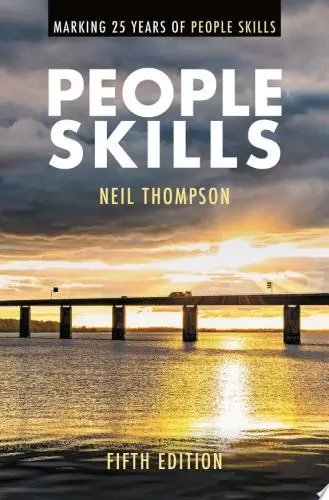
People Skills
Neil Thompson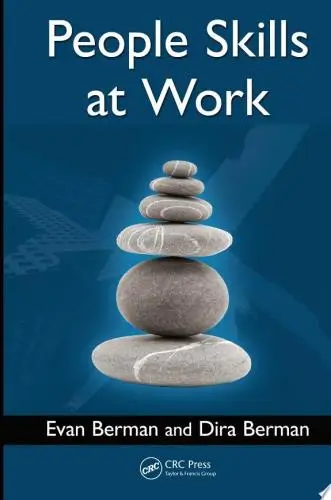
People Skills at Work
Evan Berman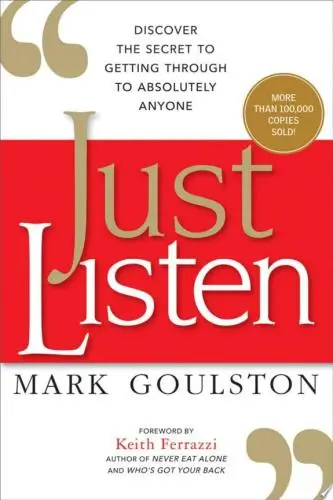
Just Listen
Mark Goulston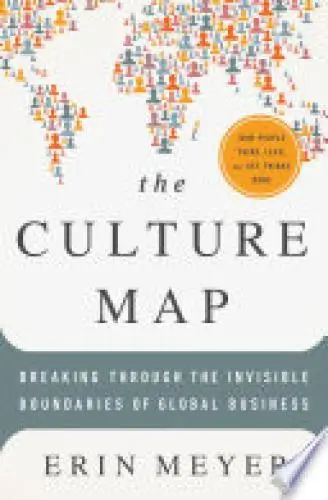
The Culture Map
Erin Meyer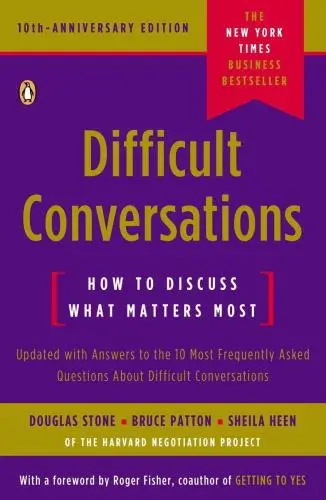
Difficult Conversations
Douglas Stone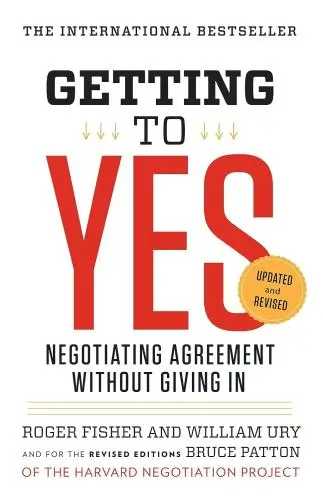
Getting to Yes
Roger Fisher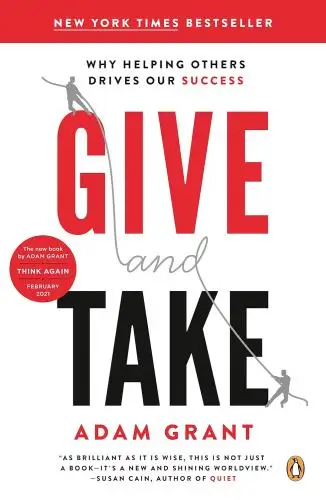
Give and Take
Adam Grant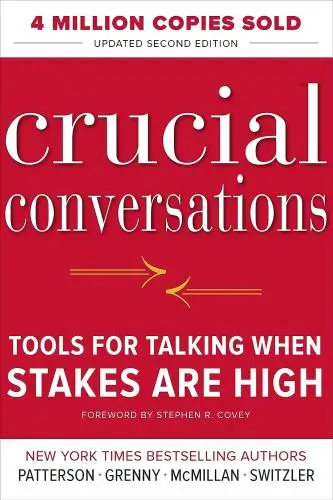
Crucial Conversations
Kerry Patterson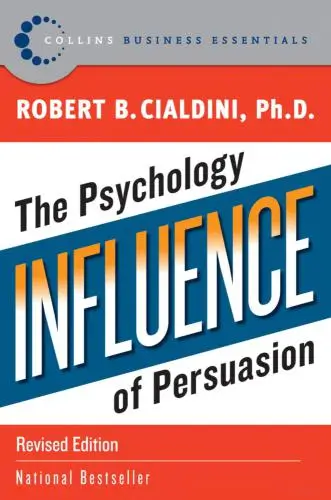
Influence
Robert B. Cialdini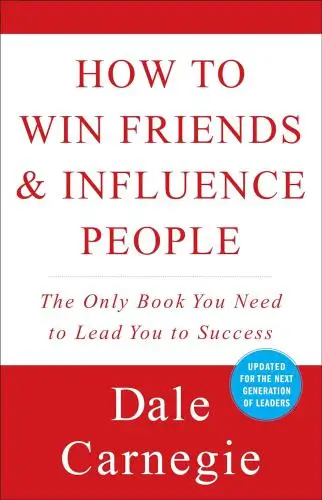
How to Win Friends & Influence People
Dale CarnegieTrending Summaries

Peak
Anders Ericsson
Never Split the Difference
Chris Voss
Smart Brevity
Jim VandeHei
The Psychology of Money
Morgan Housel
The First 90 Days
Michael D. Watkins
Atomic Habits
James Clear
Thinking, Fast and Slow
Daniel Kahneman
The Body Keeps the Score
Bessel van der Kolk M.D.
The Power of Regret
Daniel H. Pink
The Compound Effect
Darren HardyNew Books

Comprehensive Casebook of Cognitive Therapy
Frank M. Dattilio
The White Night of St. Petersburg
Michel (Prince of Greece)
Demystifying Climate Models
Andrew Gettelman
The Hobbit
J.R.R. Tolkien
The Decision Book
Mikael Krogerus
The Decision Book: 50 Models for Strategic Thinking
Mikael Krogerus
Fichte
Johann Gottlieb Fichte
Do No Harm
Henry Marsh
This is Going to Hurt
Adam Kay
